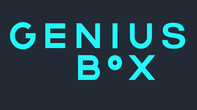Imagine your business as a Monopoly board. You’d maybe have a Filofax, a laptop, an iPad and a Twitter handle to represent the different workplace generations, and you’d almost certainly have your share of sexy major projects – technology-based leaps forward, or big data analytics probing every aspect of your customer behaviour. The spend on these would be eye watering, Mayfair- and Park Lane-sized in fact.
Meanwhile, down in HR, the budget to communicate these complex investments is just around the corner of the board over on Old Kent Road. A few sandwich and-fruit platter lunchtime sessions, or a one-hour workshop or two with a facilitator that tick all the training boxes but actually achieve zero engagement. Job done. But as we all know, it's more likely to be ‘job not done anywhere nearly as well as it needs to be done’.
And who can blame those senior executives for being so reluctant to sign off anything more than a few thousand pounds for HR’s latest training project? Especially if their personal experience of being ‘facilitated’ was probably equally superficial and ineffective: all open-toed sandals and bean bags but with no useful business-focused output.
Because while our workplaces are far more complex these days, our training capability often looks stuck in a time warp: an 80s vision where Powerpoint still predominates and where difficult concepts are boiled down to bite-sized chunks and put across to disengaged employees in 60 minute sessions that are still essentially ‘chalk and talk’ – and delivered by a facilitator who’s quite possibly as disengaged as his or her audience.
But it doesn’t have to be that way. In fact, it simply cannot go on being that way.
Not only is there a role for premium facilitation, there is a crying need for it. If you’re going to try to unlock the potential and power which is all too frequently sealed up inside every employee, then you’re going to need something special from those who task it is to find the key, turn it and open the box. You can’t have the kind of facilitator whose only solution is to say, “Thanks for sharing that with us, Chris, now let’s offer that up to the rest of the group”. There is absolutely no place in facilitation for such an approach.
Real facilitation is premium: it’s not low rent. Those major projects get Mayfair-sized budgets because they are clearly business focused and seen as vital to the long term success of a company. So why should you let your training capability be treated any differently? We’re talking here about using facilitation to give every employee the opportunity to bridge the gap between their own natural and creative ability to solve work problems, and the opportunities to apply that in our ever more complicated working landscape.
Whatever issues your organisation faces, I’ll bet you any amount that the solution is right there in your own workforce. But you’ll never be able to tap into it until you take that training capability as seriously as any other business project. If you do – if you really invest in experienced facilitators who bring a business focused creativity to your workforce – you’ll find that once fully engaged your own employees are capable of achieving goals which you might otherwise have thought to be impossible.
Don’t believe me? I could give you a dozen or more examples, but what I’m here to argue are not just the benefits of a radically different approach, but the way that this is absolutely necessary in today’s business environment. In a world where change is the only constant, training, and the use of facilitators to deliver that, has just not kept pace.
Yes, what I’m recommending is at the premium end of the market – to keep our Monopoly analogy: closer to Bond Street than Euston Road – but if HR is to make a real difference to both workplace engagement and employee confidence nothing has the lasting impact of real facilitation. So chuck out your Powerpoint and your ‘lunchtime mindfulness sessions’ because the future is facilitation and its time has come.
Andy Reid is founder of The Genius Box









